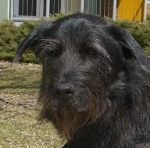I am awaiting a sleep study for possible sleep apnea. I am on the fence about whether I have it or not and if I had to guess, I would say no, but am doing the sleep study in the near future.
I am scheduled for a minor surgery in early February. It will be under general anesthesia. If I do have sleep apnea, is there a risk going under general anesthesia? Something that I need to let the doctors know? I assume many people safely have surgery every day with sleep apnea because I understand that a lot of people aren't aware that they have it, but just thought I would check.
Surgery/possible sleep apnea
Re: Surgery/possible sleep apnea
Yes, definitely tell all your doctors, in particular the one who will give anesthesia, that you may have (or do) have sleep apnea.
They may take special precautions in particularly in recovery. Good luck. Hope your sleep test is negative.
They may take special precautions in particularly in recovery. Good luck. Hope your sleep test is negative.
_________________
| Mask: Wisp Nasal CPAP Mask with Headgear - Fit Pack |
| Additional Comments: PR System One Remstar BiPap Auto AS Advanced. |
Dog is my copilot
Re: Surgery/possible sleep apnea
You are correct that people with sleep apnea have surgery every day (whether they are diagnosed or not). Even if you were undiagnosed, the risks are still low, because you are being monitored so closely. Pretty much the main risk is that, during recovery from anesthesia, you are sleeping. And when you're sleeping, you may have apneas. But they have you hooked up to all kinds of monitors at that point, so if you do have apneas, they'll know about it. Also, patients are usually on supplemental oxygen as well, so even if you have a few apneas, they may not cause a significant drop in oxygen levels.
With a sleep apnea diagnosis, you do want to tell your surgeon and anesthesiologist that you have it. But it might not change anything. You'll probably be asked to bring your CPAP machine with you, but it seems like they don't actually use it most of the time.
With a sleep apnea diagnosis, you do want to tell your surgeon and anesthesiologist that you have it. But it might not change anything. You'll probably be asked to bring your CPAP machine with you, but it seems like they don't actually use it most of the time.
- BlackSpinner
- Posts: 9742
- Joined: Sat Apr 25, 2009 5:44 pm
- Location: Edmonton Alberta
- Contact:
Re: Surgery/possible sleep apnea
Check this out viewtopic.php?f=1&t=73312&view=unread#p673887beth0277 wrote:I am awaiting a sleep study for possible sleep apnea. I am on the fence about whether I have it or not and if I had to guess, I would say no, but am doing the sleep study in the near future.
I am scheduled for a minor surgery in early February. It will be under general anesthesia. If I do have sleep apnea, is there a risk going under general anesthesia? Something that I need to let the doctors know? I assume many people safely have surgery every day with sleep apnea because I understand that a lot of people aren't aware that they have it, but just thought I would check.
A post from someone who really knows what they are talking about.
YES they need to know!
_________________
| Machine: PR System One REMStar 60 Series Auto CPAP Machine |
| Additional Comments: Quatro mask for colds & flus S8 elite for back up |
71. The lame can ride on horseback, the one-handed drive cattle. The deaf, fight and be useful. To be blind is better than to be burnt on the pyre. No one gets good from a corpse. The Havamal
- Sheriff Buford
- Posts: 4109
- Joined: Mon Aug 09, 2010 8:01 am
- Location: Kingwood, Texas
Re: Surgery/possible sleep apnea
The sleep medicine can be an issue, but the risks are relatively small. I recently had surgery because I got wacked in the head (twice) with a beer bottle at a bar (didn't see it coming). Talk to the Anesthesiologist prior to the surgery. Do what I do... think of all your questions and write them down. They want to make you feel comfortable.
This may ruffle some feathers here.... but if surgery will fix the ailment you have, and I mean a relatively high ratio of sucess... then by all means take the surgery. Too many people avoid it and live miserable lives. I know there are issues with the anesthesia, but again they are small.
Sheriff
This may ruffle some feathers here.... but if surgery will fix the ailment you have, and I mean a relatively high ratio of sucess... then by all means take the surgery. Too many people avoid it and live miserable lives. I know there are issues with the anesthesia, but again they are small.
Sheriff
_________________
| Machine: AirSense 11 Autoset |
| Mask: Mirage Quattro™ Full Face CPAP Mask with Headgear |
Re: Surgery/possible sleep apnea
It would be preferable to have the sleep study first and be using XPAP therapy before the surgery-and that often takes months.The type of operation can significantly affect your risks post-operatively. Some are very painful post-op. Some operations, such as gallbladder surgery, affect your breathing more than others. Your risks are larger if you live at 8,000 feet vs. sea level. The STOP-BANG questionnaire and your symptoms of SDB give a rough estimate of your risks post-operatively. The anatomy of your airway may affect your risks. Do you have other medical problems? Is the operation amenable to regional anesthesia or peripheral nerve blocks in addition to the general anesthesia? What sort of support will you have post-op @ home? (The narcotic pain pills will affect your breathing for several days). These are a few of the factors your anesthesiologist will consider in evaluating your post-operative risks. It may well be that it is "reasonable" to have the operation before your sleep study (my feelings-not medical advise). Some institutions will set up O2 therapy for 48 hours post-op. with home visits by an R.N. And you will need to decide if the increase in risk (be it small or large) is worth it.
Best Wishes.
Best Wishes.










